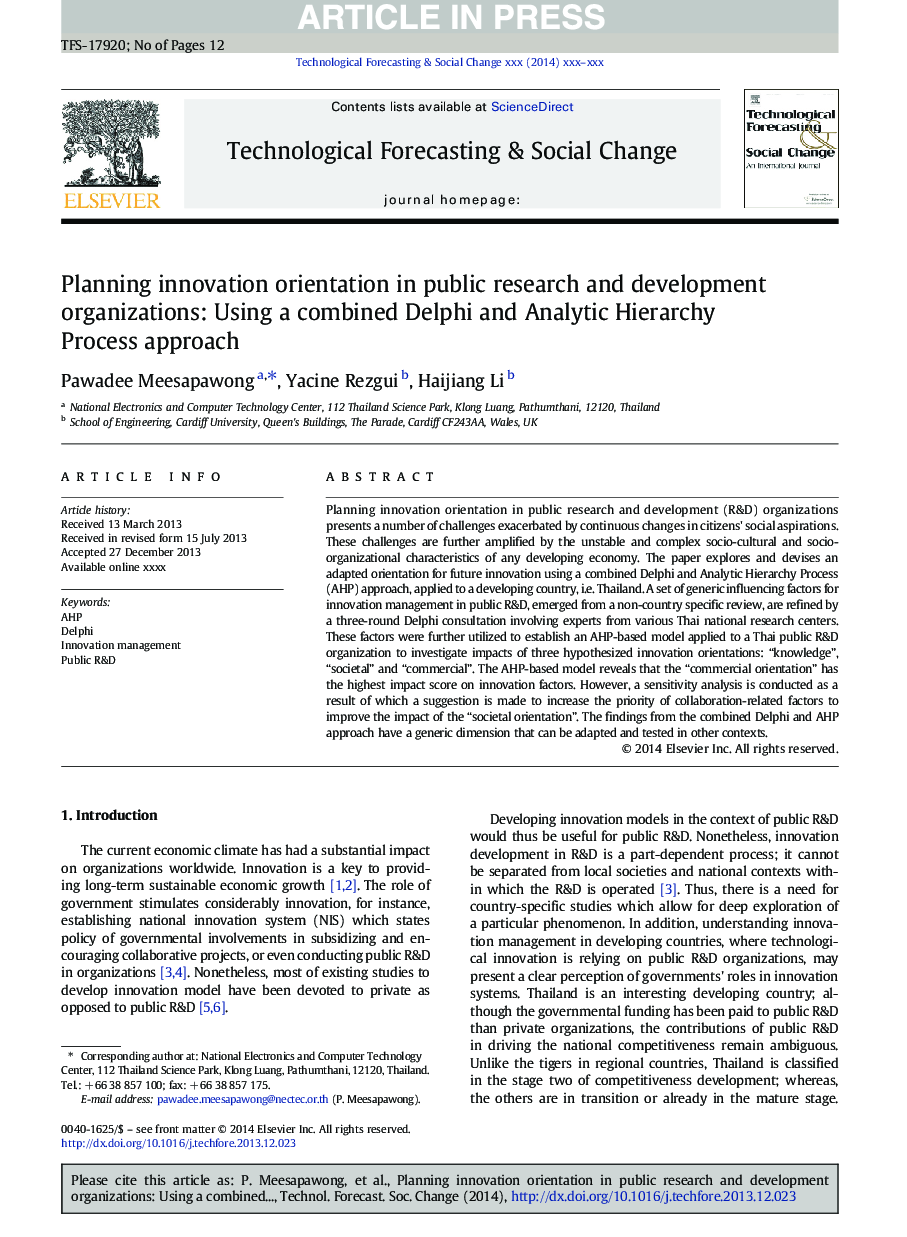| Article ID | Journal | Published Year | Pages | File Type |
|---|---|---|---|---|
| 7257215 | Technological Forecasting and Social Change | 2014 | 12 Pages |
Abstract
Planning innovation orientation in public research and development (R&D) organizations presents a number of challenges exacerbated by continuous changes in citizens' social aspirations. These challenges are further amplified by the unstable and complex socio-cultural and socio-organizational characteristics of any developing economy. The paper explores and devises an adapted orientation for future innovation using a combined Delphi and Analytic Hierarchy Process (AHP) approach, applied to a developing country, i.e. Thailand. A set of generic influencing factors for innovation management in public R&D, emerged from a non-country specific review, are refined by a three-round Delphi consultation involving experts from various Thai national research centers. These factors were further utilized to establish an AHP-based model applied to a Thai public R&D organization to investigate impacts of three hypothesized innovation orientations: “knowledge”, “societal” and “commercial”. The AHP-based model reveals that the “commercial orientation” has the highest impact score on innovation factors. However, a sensitivity analysis is conducted as a result of which a suggestion is made to increase the priority of collaboration-related factors to improve the impact of the “societal orientation”. The findings from the combined Delphi and AHP approach have a generic dimension that can be adapted and tested in other contexts.
Related Topics
Social Sciences and Humanities
Business, Management and Accounting
Business and International Management
Authors
Pawadee Meesapawong, Yacine Rezgui, Haijiang Li,
